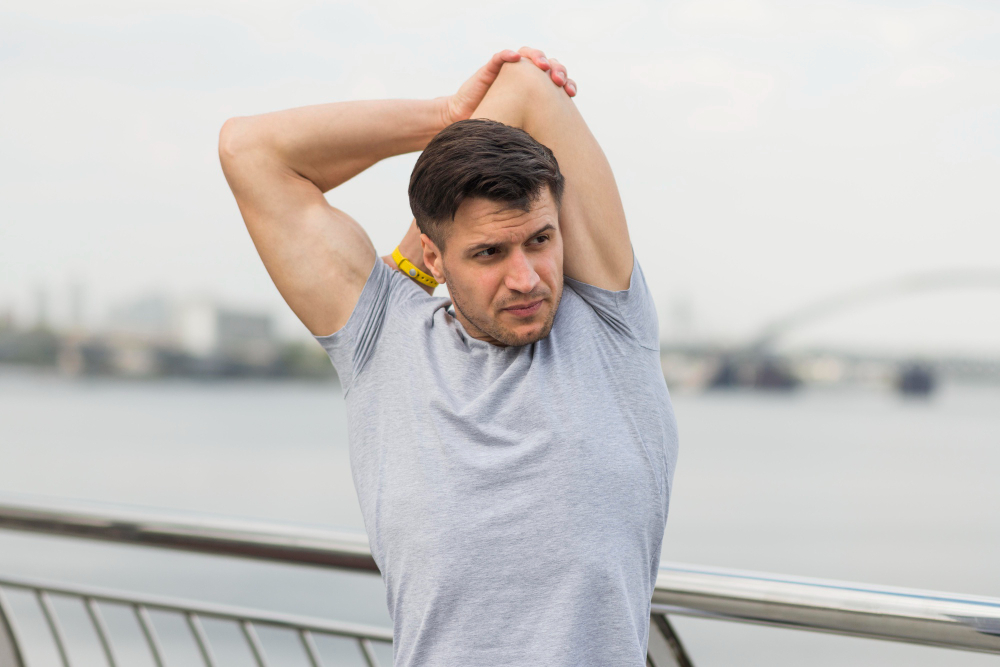
Frozen shoulder, also known as adhesive capsulitis, is a condition that causes pain, stiffness, and difficulty in moving the shoulder joint. It can significantly impact daily activities, such as reaching for objects, dressing, or even driving. If you're one of the many individuals struggling with this condition, you may have heard about strengthening exercises as a potential treatment. But can they truly help?
This blog will explore what frozen shoulder is, how strengthening exercises may play a role in recovery, and when to seek professional help. By the end, you'll have a clearer understanding of the role strengthening exercises can play and how an orthopedic surgeon in Deltona, FL, can support you on your healing journey.
What Is Frozen Shoulder?
Frozen shoulder develops when the connective tissue surrounding the shoulder joint becomes inflamed and stiff. This condition often progresses through three stages:
- Freezing Stage - Pain gradually worsens, and shoulder movement becomes limited.
- Frozen Stage - Stiffness is more significant, but pain may decrease.
- Thawing Stage - Range of motion begins to improve as the condition resolves.
The entire process can take months or even years to fully resolve.
Frozen shoulder is common among individuals recovering from surgery, injury, or a prolonged period of immobilization. Additionally, people with diabetes, thyroid disorders, or certain other medical conditions are at a higher risk of developing this condition.
Understanding the cause of frozen shoulder is critical, as the proper treatment approach may vary from person to person.
Do Strengthening Exercises Actually Help Frozen Shoulder?
When it comes to frozen shoulder, flexibility and mobility exercises often take the spotlight in treatment plans. However, strengthening exercises can also play an essential role during certain stages of recovery:
Enhancing Shoulder Mobility and Stability
While stretching exercises are essential for improving range of motion, strengthening exercises help stabilize the joint and the surrounding muscles. Because frozen shoulder can lead to weakened muscles due to lack of use, strength-building activities can enhance stability and prevent further complications.
Supporting Long-term Recovery
Strengthening exercises aren't typically the first step in treating frozen shoulder. Early on, the focus is on relieving pain and improving mobility. However, as you progress into the "thawing" phase, incorporating resistance exercises can restore functional strength, making everyday tasks easier.
Boosting Overall Shoulder Health
Finally, strengthening exercises not only target recovery from frozen shoulder but also promote overall shoulder health. A strong, stable shoulder is less likely to experience injuries or recurrent issues down the line.
When to Integrate Strengthening Exercises into Your Recovery Plan
It’s crucial to understand the right timing and approach when incorporating strengthening exercises. Here’s a general guideline:
Avoid Too Much, Too Soon
During the freezing and early frozen stages, the focus of therapy should largely be on gentle stretching and pain relief. Adding heavy resistance work at this stage may increase inflammation and worsen your condition.
Gradually Progress in Intensity
Once your orthopedic specialist or physical therapist gives the green light, you can begin integrating light strengthening exercises. Progress at a steady and manageable pace to avoid overloading or straining the shoulder.
Always Consult a Professional
Before starting any exercise for frozen shoulder, consult an experienced orthopedic surgeon or physical therapist. They can create a tailored exercise program that aligns with your specific needs, avoiding exacerbation of symptoms or further injury.
Examples of Strengthening Exercises for Frozen Shoulder
When you’re ready to incorporate strengthening exercises, here are some examples that your healthcare provider might recommend. Always perform these under the supervision of a trained professional initially:
1. Isometric Shoulder Exercises
Isometric exercises involve contracting your muscles without moving the joint. For example:
- Stand next to a wall and push your hand against it gently without moving your shoulder. Hold for 5-10 seconds, then release.
2. Resistance Band Exercises
Using a resistance band can help strengthen muscles gently and effectively. For instance:
- External Rotation: Hold a resistance band in both hands with your elbows bent at 90 degrees. Gently pull the band apart, engaging your shoulder muscles, then return to the starting position.
3. Arm Raises with Light Weights
Begin with small hand weights (1-2 pounds) and raise your arm to the side or front. Always keep the movements slow and controlled.
4. Scaption Exercise
This exercise strengthens the rotator cuff. Hold light weights in your hands and raise your arms at a 30- to 45-degree angle until they are at shoulder height, then lower them gently.
Perform each exercise for 2-3 sets of 10-15 repetitions, or as advised by your physical therapist or orthopedic specialist.
How an Orthopedic Surgeon Can Help
While strengthening exercises can offer significant benefits, they are just one component of a comprehensive treatment plan for frozen shoulder. Treatments can include:
- Physical Therapy: Working with a therapist to regain motion and strength.
- Medications: Anti-inflammatory drugs to reduce pain and swelling.
- Steroid Injections: Targeted relief for severe inflammation.
- Minimally-Invasive Surgery: For cases that do not improve with non-surgical intervention, an orthopedic surgeon can perform an arthroscopic release to improve mobility.
If you’re in the Deltona, FL area, partnering with a skilled orthopedic surgeon can help ensure you receive the right combination of treatments tailored to your specific condition.
Don’t Wait to Take Action on Your Recovery
Frozen shoulder can be a long and frustrating condition, but with the right approach, there’s hope for a full recovery. Strengthening exercises, when implemented at the appropriate stage, are invaluable for restoring function, stability, and long-term health.
If you're looking for an orthopedic surgeon in Deltona, FL, contact Central Florida Bone & Joint Institute today. Our team of experts is here to guide you through every step of your recovery. Together, we can get your shoulder back to feeling its best.